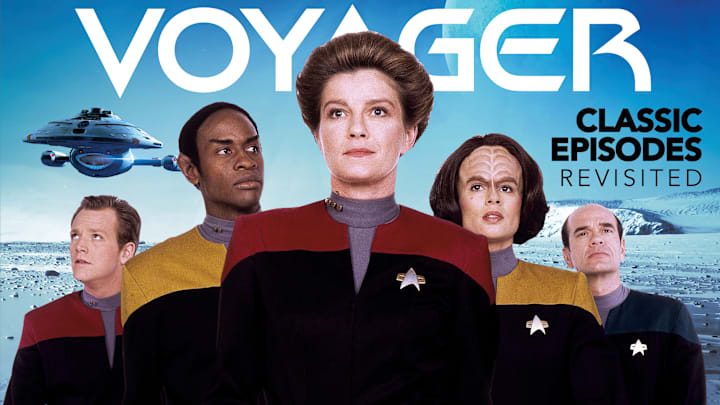Star Trek has largely been seen as a show you can jump at any point and watch, without having to see any other episode prior to that point. This format of storytelling is referred to as episodic, as each episode follows a mostly closed and self-contained story. Rarely, if ever, will an episodic episode reference past events, and due to that, fans were never left wondering what may have happened had they missed an episode.
This was standard for storytelling with series up until the 1990s, when we started more and more shows adopting the serialized version of storytelling; forcing viewers to tune in each and every week, lest they miss a major moment that reframed the entire series. Star Trek largely stuck with the former, but in the 90s they experimented with the latter, allowing Deep Space Nine to embrace more of a serialized concept in later seasons.
This was a controversial move since Deep Space Nine was syndicated, it wasn't guaranteed to air at the same time week in and week out, so people could end up missing the show that week. Star Trek's Voyager and Enterprise would begin as episodic shows, but Enterprise would adopt a more serialized format in later seasons just as Deep Space Nine did. Though not to the same degree.
Voyager on the other hand, aside from a few multi-part episodes, and the occasional and rare callback, embraced its episodic nature and really delivered because of it. Who's to say a two-parter like "Year of Hell" would still resonate so strongly if the rest of the season just constantly referenced that one two-part event?
When you over-use or overexpose concepts, they lose their heft, and due to that, you end up taking an interesting idea with a serialized concept and burning it out because you have to plan an entire season around that storyline. Some believe Voyager dropped the ball with this idea, other's point out that shows rarely maintain their momentum with a serialized product. Something Voyager was largely able to do until the end.
Looking at the CW's Arrowverse, you can see that unfold in real-time. Due to the fact that each episode had to play into the next one, the show quickly lost its relevancy and impact as they put out too many dull episodes that served as filler. If they were an episodic series, they'd likely have been able to avoid the filler-is-killer concept and fans may look more kindly at Arrow and its subsequent universe of shows.
Star Trek, works better as an episodic affair, allowing fans to detach after each episode and come into the next one with a unique set of expectations. That's far more preferred than coming in looking for this next episode to be as good or further improve upon the series. Once a show starts slipping, it fades away fast.
Star Trek found that out with Discovery and Picard, it's why every show since has gone from serialized, to a more hybrid concept where most episodes are their own adventure, but may call attention to a past idea or plot point. It works better for the current state of Star Trek shows, but the end game should still be to return to episodic storytelling.
